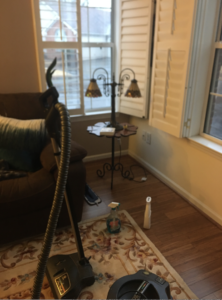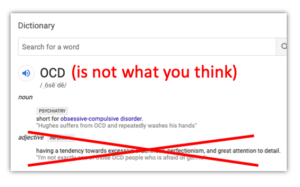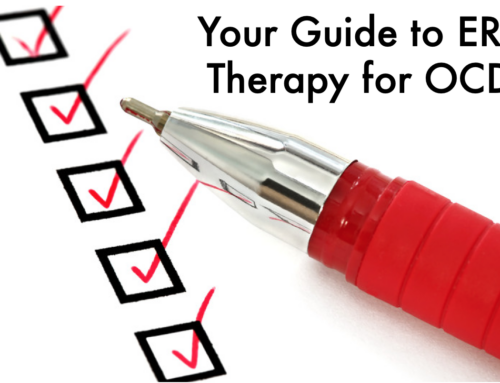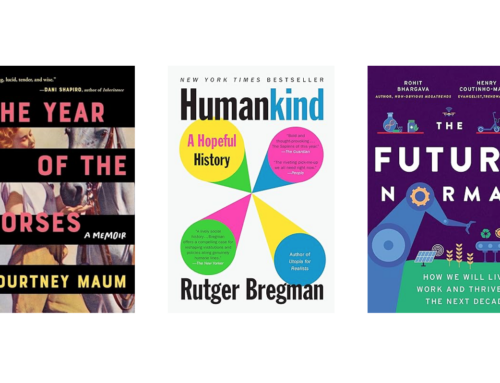“I’m so OCD” can discourage people with OCD from seeking treatment
I’m taking a break from cleaning my house to write this post about the phrase “I’m so OCD,” and at this point I’ve been cleaning for exactly 42 minutes. I know this because for me, as a person who has what’s called “just right OCD” (along with many other types of the disorder), in order to keep cleaning from becoming an OCD-driven quest for perfection, I set a timer for a specific amount of cleaning time, and I allow myself no more than that. Today I allocated two hours to clean the entire house.
Why people who have OCD about cleaning hate cleaning
However, in the past 42 minutes, I haven’t left the living room. Even though I’m fatigued from holiday preparations, I’m filled with this vibrating, palpable sense of angst as my mind furiously engages in split second, rapid fire decision-making to keep OCD from taking over. My OCD, opportunist that it is, is always louder and more demanding when I’m tired, and in those moments it can become challenging to distinguish what OCD wants me to clean (in its quest for everything to be “just so”) versus what needs to be cleaned. To give you a sense of what battling obsessive compulsive disorder can be like, here’s what happened in the span of just a few minutes in the corner of the living room, and this is representative of the whole hellish 42 minutes:

- “I need to move this mosaic table so I can vacuum under it. But would that be a compulsion? No, probably not, as I haven’t vacuumed under it in months.”
- “I should open the window blinds since the table is gone so I’ll have more light. Crap. There’s spider web debris all over the sill. Clean it or no? Yeah, might as well since the table isn’t there.”
- “Ugh. There’s still a layer of grime on the sill. Should I leave it? I think I’ve cleaned it once since I’ve lived here, so I should just go ahead and do it.”
- I’m moving fast because this is taking too long. I know I’m on the edge of being compulsive (or I am already there?), meaning I’m becoming overly attentive to detail, inadvertently helping OCD in its goal for the room to be 100% spick and span. Anxiously whirling around, I knock over the mosaic table and a lamp, which crashes to the floor, a light bulb breaking off in its socket, while pieces of mosaic glass tile go flying.
- Feeling like a kettle filled with boiling water and no spout for the steam to escape, I drop to the floor to unscrew the rest of the light bulb from the lamp, dumping dead insect debris all over the vacuumed floor.
- Trying not to swear at myself, I’m ruing my decision to clean the corner of the living room. Because if I’d left the table where it was, if I’d done a bit better job saying “no” to my OCD’s desperate attempts to get me to clean every last nook and cranny, I wouldn’t be sitting here searching for pieces of glass and wrenching the end of a light bulb out of its socket, the timer on my phone merrily ticking down the minutes I have left to clean the entire rest of the house.
Reading all that probably made you tired. Going through three quarters of an hour of it wore me out. And this little episode doesn’t even hold a candle to what my OCD used to do it me for hours and often months on end with no reprieve. See Chapter 3 of Is Fred in the Refrigerator? Taming OCD and Reclaiming My Life for a particularly poignant example, where I spent months of second grade thinking I was dying from “head cancer.”
Even though I’ve been in OCD recovery for a long time, I reflexively hate cleaning because my OCD can still throw tantrums. To debunk a popular myth, no one who has OCD symptoms around cleaning likes cleaning, because no matter how much you do, it will never be enough. OCD notices every knickknack the tiniest bit out of place as well as every smudge, smear, and speck of dust. To everyone else the room may look immaculate, but to those of us with this type of OCD, we only see what OCD sees: that the room is still not and will never be perfect.
Even in recovery, OCD can still be a monster of a disorder.
OCD is not what you think
When people say, “I’m so OCD,” they’re saying, “I can’t help making things neat and tidy, and forgive me for this cute little quirk that gives me a fantastically good-looking result.”
 Therefore, when people say, “I’m so OCD,” or variations thereof, they are thinking it’s a GOOD thing to be like this. That it’s like ordering your water with no lemon or your burger medium rare. That it’s a choice, a taste preference, an idiosyncrasy that doesn’t do you or anyone else any harm.
Therefore, when people say, “I’m so OCD,” or variations thereof, they are thinking it’s a GOOD thing to be like this. That it’s like ordering your water with no lemon or your burger medium rare. That it’s a choice, a taste preference, an idiosyncrasy that doesn’t do you or anyone else any harm.
No one using OCD in everyday speech as an adjective to mean meticulous means any harm. Because OCD has become divorced from what it stands for: obsessive compulsive disorder, the 10th most disabling condition in the world (Murray and Lopez, 1996). OCD is the disorder that made me feel like I was living as a hostage at gunpoint in a suspense novel, trying to get away from an unrelenting abuser who tortured me mercilessly for decades, who told me not only that everything had to be “just so,” but that I had hurt and even killed people, that I was dying from incurable diseases, that I was a horrible, rotten person who was bad to her core. (That “suspense novel” became the basis for my memoir, Is Fred in the Refrigerator? Taming OCD and Reclaiming My Life.) OCD took years of my life. Years I will never get back.
No one who has a diagnosis of obsessive compulsive disorder says, “I’m so OCD.” Because that’s the absolute last thing we want to be. Because #RealOCD means that you’re sitting in hell, in the middle of your living room, unable to clean one room in a reasonable amount of time because you’re so tired from making endless decisions about what to clean and not to clean to keep your damn disorder in check.
If I’m honest, if I heard someone say any variation of “I’m so OCD” in the aftermath of this most recent battle with the disorder, the ashamed, angry, humiliated part of me, the part of me huddled in the corner pulling a light bulb out of its socket and licking its bleeding and tender wounds, would want to scream, “It’s an insult for you to say that after what I’ve been through!” Because to those of us with OCD, the offhand, casual use of the name of a disorder that makes our lives a living hell is, without question, offensive. But that is surprisingly not the main reason that the misuse of OCD is a problem.
“I’m so OCD” can keep people from seeking treatment
The hypothesis that’s being formulated by advocates and OCD experts working nationally to correct the “I’m so OCD” issue is that when people who have untreated OCD hear other people misuse the name of their disorder, it discourages them from getting treatment. Because if everyone is “so OCD” then nothing is really wrong with them. If everyone has OCD, shouldn’t they just get over it? Just laugh self-deprecatingly whenever they do something that’s “so OCD” and move on? Isn’t that what everyone else is doing?
Please understand that I’m not trying to be the language police (although it may come across that way), as everyone wants to choose their words based on their own preferences and experiences. I am instead trying to educate about the damage that our language choices can cause. After all, rarely do you hear the “r-word” or many other terms anymore even though they used to be acceptable because we’ve determined as a society that they harm others and are therefore not acceptable, as powerfully explained in this video featuring Lauren Potter and Jane Lynch from Glee.
Just as in the cases in the video, the use of “I’m so OCD” is not acceptable because it’s causing harm, as it’s likely that the misuse of the name of a brain disorder is keeping people who have OCD from getting the help they need. No one with OCD needs to suffer for even one more day than they have to, because the disorder can be so treatable with exposure and response prevention therapy (ERP) and/or medications.
Spread the word: a small change makes a big difference
I’m going to finish cleaning my house in the 1 hour and 18 minutes I have remaining*. But before I go, I hope you will join me in spreading the word that the use of “I’m so OCD” is harmful. That people can make a big difference in the lives of those suffering with OCD by making a small shift in language, changing “I’m so OCD” to “I’m neat and tidy” or “I’m meticulous” or “I like things to be a certain way.” Words matter, as you never know who’s standing around you, and 1 out of every 100 people has OCD. You never know who might hear a variation of “I’m so OCD” and feel ashamed and further retreat into an internal mental prison, trying even harder to just “get over” a brain disorder that left untreated, could destroy her life.
* Without remembering that I want “two servings” of things that upset my OCD, I won’t like the thought of cleaning, but normally I don’t get stuck because I’m good about doing the opposite of what OCD wants. I’ll get past this episode, learn from it, and get stronger. I will even commit to you that I will clean the entire rest of my house JOYfully—Jumping into anxiety, Opting for Greater Good, and Yielding to uncertainty (Hershfield and Nicely, 2017)—in my remaining time, and I will remember to want to do it!
P.S. I also encourage readers to listen to Episode 131 of Your Anxiety Toolkit: Does Khloe Kardashian have OCD? for an in-depth discussion by OCD expert Kimberley Quinlan about the criteria for diagnosing OCD, as well as an explanation of other diagnoses and/or conditions with which OCD can be confused.
References
Hershfield, J & Nicely, S. 2017. Everyday Mindfulness for OCD: Tips, Tricks & Skills for Living Joyfully. Oakland, CA: New Harbinger Publications.
Murray, C. J. L., & Lopez A. D. 1996. The Global Burden of Disease. Cambridge, MA: Harvard University Press.
Sign up for my Shoulders Back! newsletter to receive OCD-taming tips & resources delivered every month to your inbox.
My blogs are not a replacement for therapy, and I encourage all readers who have OCD to find a competent ERP therapist. See the IOCDF treatment provider database for a provider near you. And never give up hope, because you can tame OCD and reclaim your life!







[…] check out this excellent blog post by the amazing Shala Nicely, LPC on the problem with saying “I’m so […]
[…] I strongly encourage you all to read Shala Nicely’s amazing blog post about this exact issue, mostly addressing the misuse of the term, “I am so OCD”http://www.adaytodie.com/aha-moments/ocd-is-not-what-you-think/ […]
[…] I strongly encourage you all to read Shala Nicely’s amazing blog post about the misuse of the term, “I am so OCD.”https://shalanicely.com/aha-moments/ocd-is-not-what-you-think/ […]